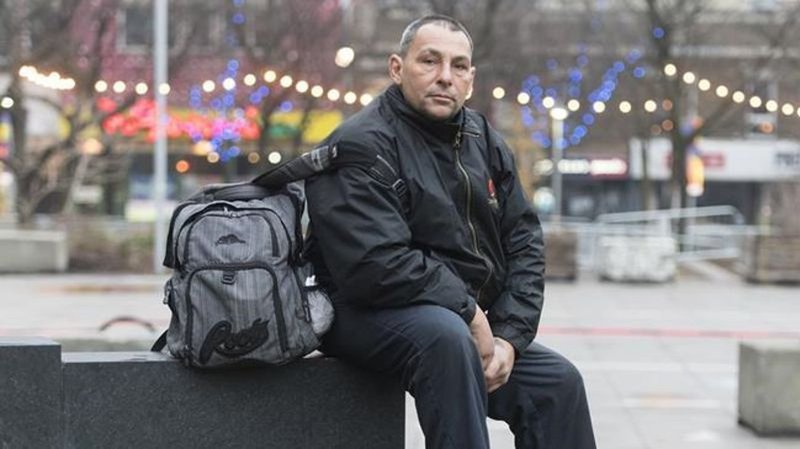
From tents to converted 4-star hotel, pandemic prompts changes for Montreal homeless
MONTREAL — Alexandre was sorting cans one recent morning outside a tent pitched next to a busy Montreal road by the Port of Montreal.
Until the COVID-19 pandemic hit, he had been sleeping at a homeless shelter, but when health measures forced the shelter to cut its capacity, he was forced onto the street. For the past three months, Alexandre, who refused to give his last name, has called this informal encampment east of downtown Montreal home. In late November, his was one of more than 40 tents on the thin stretch of grass.
“So far it hasn’t been too cold,” he told a reporter. He likes that people are free to come and go, unlike the shelter, which he says was “like a prison.” He figures he’ll tough it out through the winter.
While tent cities like this are new to Montreal, shelter workers and experts say it’s not necessarily a sign that significantly more people in Montreal are homeless. But they all agree that the pandemic has made homelessness more visible and disrupted the way people access both formal and informal services.


